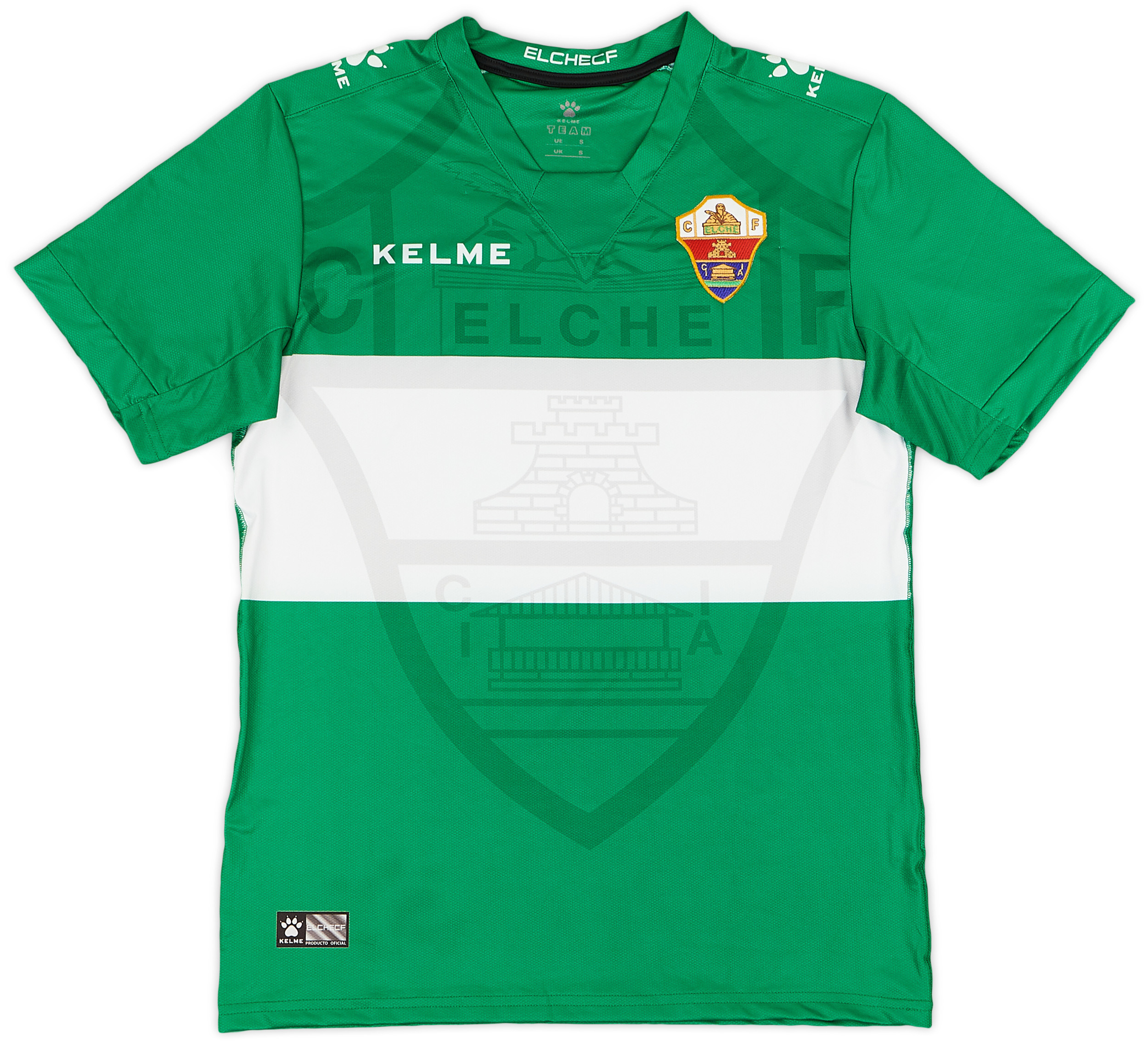Elche
Introduction Elche Club de Fútbol, commonly referred to as Elche CF, is a professional football club based in Elche, Alicante, Spain. Founded in 1923, the club boasts a rich history deeply intertwined with the identity of the city and its residents. Known for its distinctive green and white colors, Elche has captured the hearts of […]
2018-19 Elche Third Shirt - 9/10 - (S)
58.99£ - ca: €70
Introduction
Elche Club de Fútbol, commonly referred to as Elche CF, is a professional football club based in Elche, Alicante, Spain. Founded in 1923, the club boasts a rich history deeply intertwined with the identity of the city and its residents. Known for its distinctive green and white colors, Elche has captured the hearts of fans in the region, embodying the spirit of the local community through its passionate performances on the pitch. The club’s highs and lows mirror the challenges and triumphs of its supporters, making Elche a symbol of resilience in the world of football.
Club History
Elche CF was founded on the 20th of December, 1923, initially playing in regional leagues. The club slowly climbed through the ranks, making its debut in Spain’s top-tier league, La Liga, in 1960. Elche’s early years featured a blend of local talent and strategic signings, leading to their first major achievement with promotion to Segunda División, which they won in the 1958-1959 season. The early 1970s marked a golden era for the club as they reached their pinnacle by finishing in a commendable 6th place in La Liga during the 1969-1970 season, showcasing their potential against the strongest teams in Spain.
However, the club faced challenges in subsequent decades, fluctuating between the top and second divisions. In 1989, Elche experienced relegation that significantly impacted its stature in Spanish football. The struggle continued through the late 20th century, culminating in their relegation to the third tier in 1997, which threatened the club’s very existence. Despite these hardships, Elche CF displayed remarkable resilience, ultimately earning promotion back to La Liga in 2013, marking a triumphant return to the top tier.
Achievements
Elche CF has a modest but significant trophy cabinet filled with noteworthy accomplishments that reflect its competitive spirit. Domestically, the club’s most prominent achievement includes lifting the Copa del Rey title in the 1969-1970 season. This historic victory against the formidable Real Madrid cemented their status as a contender in Spanish football. Additionally, they won the Segunda División title three times (1961-62, 1972-73, and 2012-13), demonstrating their ability to bounce back after difficult periods. Elche has also made several appearances in European competitions, notably reaching the quarter-finals of the UEFA Cup in the 1972-73 season, leaving an indelible mark in European football.
Significant Players and Matches
Throughout its history, Elche CF has been home to numerous talented players who have left a lasting impact on the club. One notable player is José Antonio “Nino” Garcia, whose loyalty and goal-scoring prowess made him a club legend. Another significant figure is midfielder and captain, Manuel “Manu” Sánchez, known for his leadership on and off the pitch. These players symbolize the spirit of Elche, showcasing professionalism and dedication.
Among landmark matches, the 1969 Copa del Rey final stands out as a defining moment, where Elche claimed victory over Real Madrid, with a stunning performance that stunned the football world. Similarly, the 2013 promotion playoff final against Las Palmas was another high-stakes encounter that saw Elche secure its place back in La Liga, a triumph celebrated by fans across the region.
Cultural Impact
Elche CF is more than just a football club; it represents the cultural fabric of the town of Elche. The passionate fanbase, known as “Franjiverdes,” contributes to a vibrant atmosphere during matches at the Estadio Manuel Martínez Valero, the club’s home ground. The stadium, with a capacity of over 30,000, comes alive on match days, uniting fans from diverse backgrounds in support of their team.
The club serves as a significant source of local pride, fostering community engagement through youth programs, outreach initiatives, and partnerships with local schools. The club’s motto, “Suma y sigue” (Add and Continue), exemplifies the persistence and determination of both the organization and its supporters. This mission has created a sense of belonging and identity among the fans, further solidifying Elche’s influence beyond the pitch.
Conclusion
In conclusion, Elche Club de Fútbol is a notable institution in the realm of Spanish football with a rich history and significant cultural impact. From its humble beginnings in 1923 to its remarkable achievements and the loyalty of its fans, Elche continues to inspire, representing a resilient spirit amidst challenges. The club’s commitment to excellence, combined with its deep roots in the local community, positions Elche CF as a beloved fixture in football history. Whether navigating the highs of victory or weathering the lows of defeat, Elche embodies the essence of passion and perseverance that define the beautiful game.
